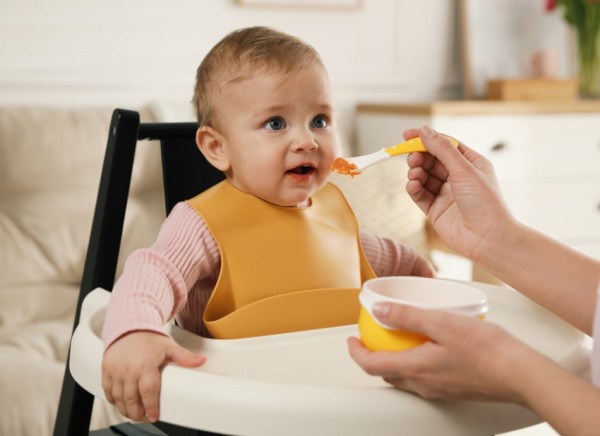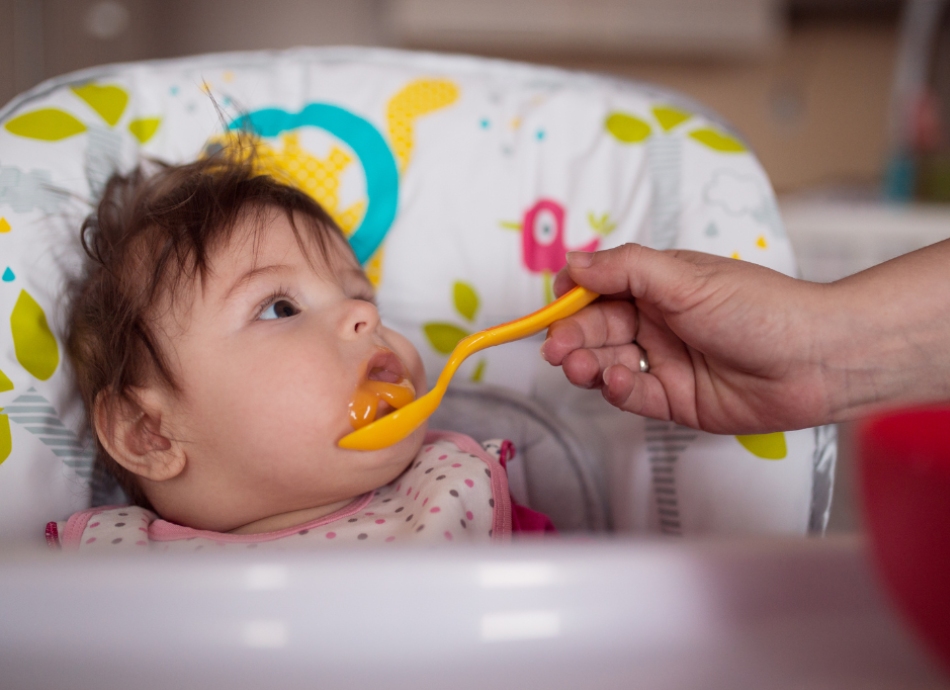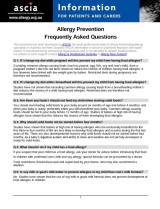Helping reduce the risk of a food allergy
Research shows that giving your baby the common allergy causing foods before they turn 1 year of age can help reduce the risk of them developing an allergy to that food.
When your baby is ready at around 6 months, but not before 4 months, start to introduce first foods including smooth peanut butter and well-cooked egg. Delaying the introduction of the common allergy causing foods doesn't prevent food allergy.
Pēpi (babies) have a natural ability to tolerate new foods. This disappears as they get older. Delaying the introduction of foods could lead to an increased chance of food allergy.

Image credit: Depositphotos
If you're breastfeeding, continue while you introduce solid foods
Breastfeeding is recommended for the many benefits it provides to both mothers and pēpi. If breastfeeding, it's important to continue while you introduce solid foods to your baby.
Keep eating all foods if you're a breastfeeding mother
It's important to keep eating all foods if you are a breastfeeding mother. See an allergy trained doctor or dietitian before removing a food from your diet. Most allergic reactions don't occur through the breastmilk.
Introduce common allergy causing foods to all babies before 1 year of age
This advice is for all pēpi, whether you have a family history of food allergy or not. Your baby does not need testing before eating a food. Testing doesn't show whether they will have a reaction when they eat the food.
Pēpi with eczema have a higher chance of developing a food allergy to a food they don't eat.
If you think your baby has a food allergy, ask your healthcare provider for advice. It's important that an allergy trained healthcare provider confirms any food allergies, once there are suspicious symptoms.








